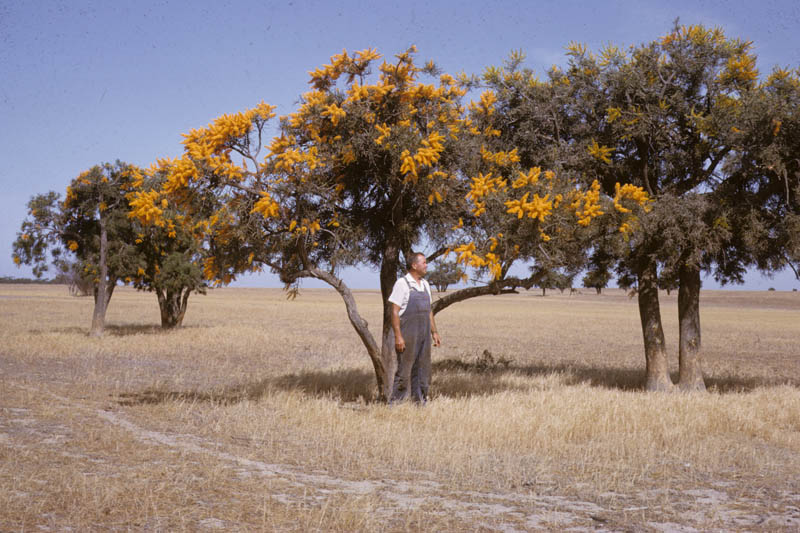Western Australian Christmas Tree
(Nuytsia floribunda)
Nuytsia floribunda can affect many other Organisms
The Western Australian Christmas Tree is a parasitic tree that accepts a number of species as its host. From grass to a grove of trees, Nuytsia floribunda can use basically any plant with roots as its host. In this parasitic relationship, a Nuytsia floribunda's haustorium severs the host root and reattaches a portion of the host's xylem to its own xylem stealing water and nutrients from the host plant as explained in more detail in Nutrition. Even though it is considered parasitic, the tree is still considered to be a primary producer. Thousands of organisms accompany Nuytsia floribunda in the Southwest Australia region as explained previously in Habitat and Geography.
Interactions with Humans
Can Nuytsia floribunda flowers get you high? According to residents of Perth, Australia recent experiments with Nuytsia floribunda have made them believe it to be a Monoamine oxidase inhibitor. This is a popular form of antidepressant used for the treatment of depression. Through the brewing of the flower stalks and bark into a tea it is said that it can push one into a sedated/meditative state of mind. Therefore the plant may have medicinal qualities associated with it, but it needs a lot more research to clarify its effects on the body.
Treatment of Cancer:
Mistletoe, which Nuytsia floribunda is a form of, has been used as a natural way to defend against cancer for the past 75 years. It has been one of the top alternative cancer treatment plans of cancerous tumors in Europe. Treatments include the intake of mistletoe extracts three to seven times a week for several months to a year. The mistletoe extracts include viscotoxins and lectins which can kill cells by damaging cellular membranes, halting protein synthesis, and then stimulating the immune system (Carson, 2009). Positive results have been recorded by Cancer Net, a branch of the National Cancer Institute as they have seen reduced tumor size, increased survival, recovery of blood cell counts, and improved quality of life (Carson, 2009). However mistletoe is not approved in the United States of America as a legitimate cancer treatment until further research is done to prove the efficacy of its treatment abilities.
Treatment Risks:
Mistletoe extracts that are received over the counter have minimal side effects that include headache, fever, chills, and an irregular heartbeat. However if mistletoe is eaten it is highly toxic and can kill infants and small children easily (Carson, 2009).
